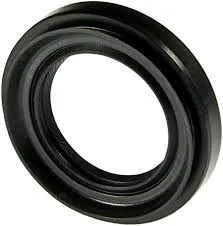10 月 . 04, 2024 18:55 Back to list
oil pan gasket
Understanding Oil Pan Gaskets Importance, Types, and Maintenance
The oil pan gasket is an integral component of your vehicle’s engine assembly, serving as the seal between the oil pan and the engine block. This vital gasket ensures that oil does not leak from the oil pan, which could lead to severe engine damage. In this article, we will explore the significance of the oil pan gasket, the different types available, and tips for maintenance to ensure your engine operates smoothly.
Importance of Oil Pan Gaskets
The primary function of the oil pan gasket is to keep the engine oil contained within the pan. Engine oil plays a crucial role in lubricating the moving parts of the engine, reducing friction, and preventing overheating. A properly sealed oil pan ensures that the oil circulates effectively within the engine, enhancing its performance and longevity.
A damaged or worn-out oil pan gasket can lead to oil leaks, which not only causes a drop in oil levels but can also create a mess under the vehicle, potentially leading to hazardous situations on the road. Moreover, oil leaks can lead to inadequate lubrication, resulting in increased wear and tear on engine components and possibly necessitating costly repairs or even complete engine replacement. Therefore, understanding the oil pan gasket's role can help vehicle owners take proactive measures in maintenance.
Types of Oil Pan Gaskets
There are several types of oil pan gaskets available in the market, each with its materials and construction methods
.1. Rubber Gaskets These are common in many vehicles due to their flexibility and resistance to oil. They tend to provide a good seal and are easy to install. However, they may experience deterioration with prolonged exposure to high temperatures.
2. Felt Gaskets Made from compressed fibers, felt gaskets were once popular but are less common in modern vehicles. They don’t provide as strong of a seal as rubber or silicone but can be found in some vintage models.
3. Silicone Gaskets Silicone gaskets are increasingly becoming the preferred option for many vehicles. They offer excellent sealing properties and can withstand high temperatures and oil exposure without deteriorating. They provide a long-lasting solution, reducing the need for frequent replacements.
4. Composite Gaskets These gaskets are made from a combination of materials, often incorporating fibers and elastomers, and provide a robust option for sealing. They are designed to withstand the demands of high-performance engines.
oil pan gasket

Choosing the right type of gasket is crucial, as the wrong material can lead to leaks and other issues. Always refer to the vehicle manufacturer’s specifications to ensure compatibility.
Maintenance Tips
Regular maintenance of your vehicle plays a significant role in the longevity of the oil pan gasket. Here are some tips to ensure your oil pan gasket remains in optimal condition
1. Check Oil Levels Regularly Low oil levels can lead to increased stress on the gasket. Regularly check and maintain proper oil levels to ensure adequate lubrication.
2. Monitor for Leaks Be vigilant for signs of oil leaks, such as dark spots on your driveway or garage floor. If you notice any leaks, it’s essential to address them immediately. Ignoring leaks can lead to more extensive damage.
3. Change Oil Regularly Old, contaminated oil can break down engine components, including gaskets. Follow a regular oil change schedule based on your vehicle’s requirements.
4. Use Quality Parts When replacing the oil pan gasket, opt for high-quality aftermarket or OEM (Original Equipment Manufacturer) parts. Cheaper alternatives may save money initially but could lead to more significant problems down the line.
5. Seek Professional Help If you suspect issues with your oil pan gasket, it’s best to consult with a professional mechanic. They can provide a thorough inspection and recommend necessary repairs.
Conclusion
The oil pan gasket is a crucial component of your vehicle's engine, and understanding its significance can help prevent costly repairs. By knowing the types available, taking proper care, and staying alert for signs of wear, vehicle owners can ensure their engines remain healthy and efficient for years to come. Regular maintenance, quality parts, and timely repairs are key to safeguarding this essential gasket and, by extension, the overall performance of your vehicle.